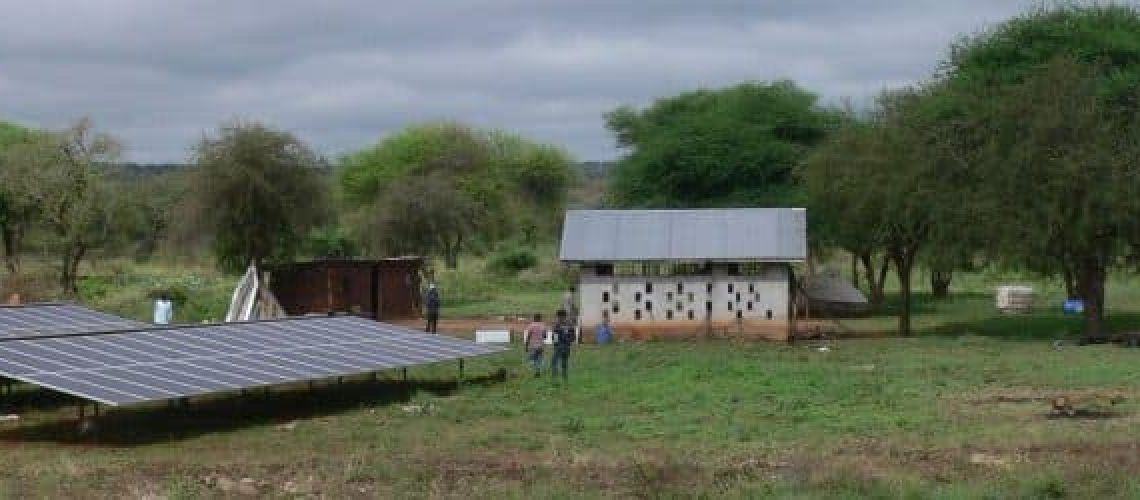The Milken Institute and the Motsepe Foundation announced 20 semifinalist recipients for a prize in green energy, with $20,000 in initial awards and the potential for five teams to compete for a $1 million grand prize.
About 12 countries and some 11 technologies that use solar photovoltaic (PV) systems were represented among semi-finalist start-up enterprises standing to receive grant funding from two international organizations for clean energy projects to be deployed in Africa.
The Milken Institute and the Motsepe Foundation announced 20 teams would receive semifinalist prizes for the Milken-Motsepe Prize in Green Energy, with $20,000 in initial awards and the potential for five teams to compete for a $1 million grand prize.
Selected teams will now have four months to create a demonstration project to show the effectiveness of their proof of concept.
Since launching in November 2022, more than 3,800 candidates from over 120 countries have registered in the competition. Over 160 of the registrants representing 36 countries submitted technical design and business model proposals. From the proposals, judges from the California-based Milken Institute and Johannesburg-based Motsepe Foundation selected the 20 most transformative concepts.
Clean energy projects are being evaluated by three main criteria based on their ability to generate off-grid electricity using green energy sources; provide affordable and reliable electricity to energy-poor communities, including in rural areas; and develop a technological and business approach that is scalable across Africa.
Among top five semi-finalists from North America and Europe include:
- Aftrak – An acronym for Africa Tractor, Aftrak is a UK start-up of Dr. Jonathan Wilson of Loughborough University that will use solar and lead-acid batteries to power tractors for agriculture use. The AfTrak tractor will be trialed in Malawi, with a focus on enabling an agricultural technique, deep bed farming, while also providing microgrid off-grid power to Malawi villagers when tractor systems are not in use.
- Smart AgriCentres – Developed in the UK by Zoe Slattery, the Smart Villages Research Group platform provides rural energy accessibility and clean water infrastructure to villages across Africa. With a cold storage facility at center with dry storage, the Smart Agri-Centre generates 45 kW of community solar systems to provide energy needed for village services, cold and dry goods storage solutions.
- GenH – From Siddharth Pannir, a former Lux Research research associate, the Boston-based company designed a modular hydro-electric power system, Adaptive Hydro. Providing hydro power at 3 cents per kWh, the remote power system is designed as an inexpensive clean solution to replace off-grid diesel and fossil fuel generators in remote regions. Formed in 2016, the platform has raised $10,000 in grant funding to date.
- GEG EHF – An Icelandic technology formed in 2019, GEG is a hybrid solar PV plus geothermal hybrid renewable energy system (HRES). The company has developed more than 15 projects in India, Chile, Croatia, Iceland and Kenya that produce between 5 MW and 28 MW of clean power using modular solar photovoltaics and advanced cooling systems in partnership with local industrial partners.
- New Horizons Technologies– Based in Wasilla, Alaska, founder Christopher Hunter is developing a thermal solar power generator.
“Access to electricity is vital to transforming societies—from health care to education to economic growth,” said Dr. Precious Moloi-Motsepe, co-founder and chief executive officer of the Motsepe Foundation. “As recently proven by the winners of the Milken–Motsepe Prize in AgriTech, innovators have the power to create transformative solutions to challenges once thought to be impossible.”
In May 2024, the judges will award a grand prize to the leading technology provider, with a $250,000 runner-up prize awarded.
“The innovation competition encourages entrepreneurs to be creative and expansive,” said Dr. Emily Musil Church, senior director at the Milken Institute’s Center for Strategic Philanthropy. “By allowing field tests anywhere in the world in the first round, the competition allows flexibility for teams to take strategic risks. This is the heart of the innovation competition model: to reward innovators who take bold action.”
The Milken Institute is a California nonprofit think tank focused on accelerating measurable progress on financial, physical, mental, and environmental health gains.
The Motsepe Foundation was founded in 1999 by Dr. Patrice Motsepe and wife, Dr. Precious Moloi-Motsepe, to contribute towards eradicating poverty and sustainably improve living conditions and standards of life of poor, unemployed and marginalized communities across Africa and other parts of the world.



